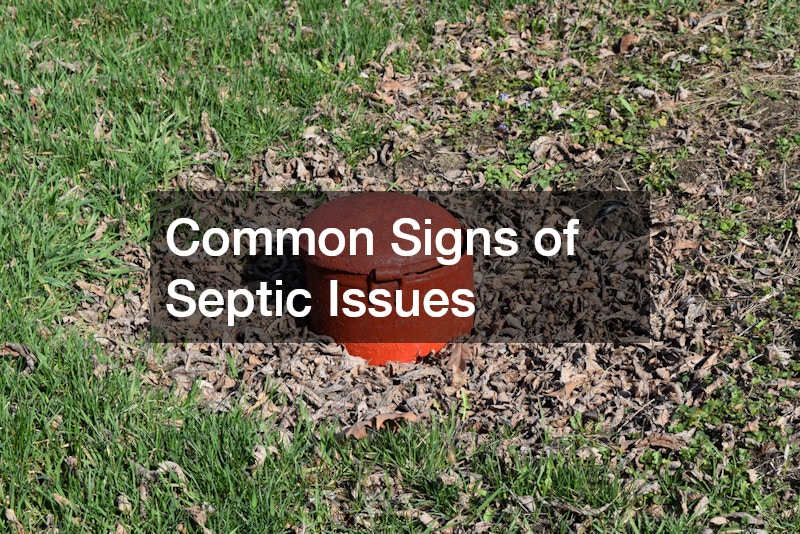Septic systems are a crucial component for many homeowners, especially those located outside municipal sewer systems. These systems ensure the safe processing and disposal of wastewater, which can impact both health and environmental sustainability. Enlisting professional septic companies is essential to maintaining the efficiency and longevity of these systems, as they offer the expertise required for comprehensive care.
Septic Tank Inspection
Routine septic tank inspections are key to ensuring a system is functioning properly. These inspections typically entail a thorough examination of the tank and its components, checking for signs of wear or damage.
Most experts recommend conducting inspections every three to five years, but homes with larger systems or higher water usage might require more frequent assessments.
Septic companies are equipped with the necessary tools and experience to perform these critical assessments. During an inspection, technicians may uncover issues like sludge buildup or structural cracks that homeowners typically can’t identify. Timely identification of these problems through professional inspection can prevent further complications.
Moreover, septic tank inspections not only assess the condition of the tank but also provide valuable insights on its performance. They help gauge the rate of scum and sludge accumulation, which dictates cleaning and maintenance schedules. By reassuring homeowners of system integrity, inspections contribute to peace of mind and consistent septic health.
Septic Tank Pumping and Cleaning
The process of septic tank pumping involves removing the accumulated sludge and scum from the tank to maintain its proper function. Regular cleaning is crucial to prevent overflow and potential system failure. Homeowners should be aware of signs indicating the need for pumping, such as unusual smells and slow drainage.
Septic companies provide this service using specialized equipment that reaches deep into the tank to remove waste effectively. This not only ensures that the tank operates efficiently but also helps maintain the health of the surrounding environment by preventing leaks. Removing accumulated waste prevents backups and extends the life of the septic system.
Regular cleaning, ideally every three to five years depending on household size and water usage, can save homeowners from facing costly repairs or replacements. Trusting professionals for this task is essential, as improper handling of sewage can lead to health hazards. By investing in routine pumping, homeowners protect their property and the environment.
Repair and Maintenance
Beyond inspections and cleaning, septic companies offer repair and maintenance services to address various issues that might arise. Common repairs include fixing leaky pipes, repairing cracks in the tank, and unclogging outlet pipes. By taking advantage of preventative maintenance options, homeowners can avoid severe drainage problems and prolong the functionality of their system.
Proactive maintenance focuses on anticipating potential failures and mitigating problems before they exacerbate. This includes tasks such as checking mechanical components and cleaning filters. Regular professional servicing prevents major disruptions, promoting a more seamless daily routine for homeowners.
Furthermore, relying on expert repair and maintenance services ensures adherence to safety standards and efficient system operation. Technicians bring deep industry knowledge and have access to specialized tools that are crucial for effective repairs. Investing in professional care ultimately supports long-term cost savings and enhanced system performance.
Common Signs of Septic Issues
Awareness of common septic system issues is vital in preventing severe damage. Homeowners should watch for signs such as slow drains, persistent odors, and water pooling in the yard as indicators of a system in distress. These warning signs suggest blockages or overfilled tanks that require prompt attention.
Ignoring these symptoms can lead to significant damage and health issues caused by untreated sewage in the home or environment. Quick response to such signs by contacting septic professionals can prevent critical failures. Addressing the problem at its onset often results in less costly repair solutions.
How to Conduct a Basic Self-Assessment
While professional evaluations are recommended, homeowners can conduct basic self-assessments to monitor their septic system. This involves examining common indicators like water drainage rates, surface water presence, and unpleasant odors around the vicinity. These simple checks allow homeowners to identify when professional intervention is needed.
Walking the perimeter of the septic area and looking for excessive wetness or visible waste can reveal emerging issues. Homeowners can also listen for unusual sounds when water is running in the plumbing system as another clue of internal problems. Simple observations can serve as an early warning system for potential septic failures.
Health and Environmental Benefits
Maintaining a septic system is not only economically sound but also supports community health and environmental preservation. A well-maintained system prevents untreated waste from contaminating the ground, water resources, and local ecosystems. By averting leaks and contamination, homeowners protect both their families and the wider environment from pollution.
Septic systems, while often out of sight, are integral to functional and healthy homes, demanding expertise and attentive service. By employing septic companies, homeowners ensure their systems operate at peak efficiency, avoiding major headaches and potential hazards. Systematic maintenance underscores the prudent management of waste, offering economical, health, and environmental dividends to conscientious homeowners.


